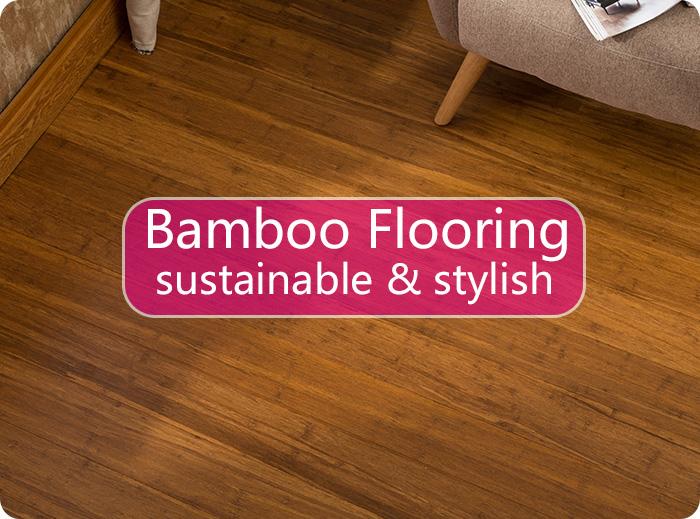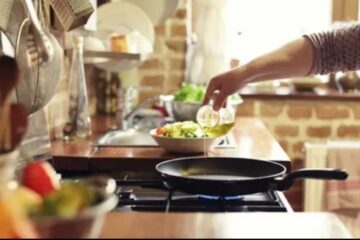Advantages
Tough and Durable: Top quality bamboo flooring is very dense and hard, even harder than some hardwoods. As a result, it is extremely durable, structurally stable and tough. With careful attention and maintenance, it may last up to 50 years. Under normal household wear and tear, it can be expected to last up to 25 years. It is also termite resistant.
SUSTAINABILITY: Bamboo plants are fast-growing and can be quickly renewed and harvested every five to six years. Most bamboo is grown in a sustainable manner. Using bamboo flooring reduces pressure on other wood species.
Attractive: Bamboo flooring offers a clean, modern look that is popular with architects and many homeowners.
Easy to clean and refinishable: Bamboo flooring is easy to clean if the construction is done correctly. And it can also be refinished to extend its life.
Disadvantages
Generic, uniform look: unlike engineered wood and hardwood flooring, bamboo has a unique but very uniform grain pattern. This can make it appear more generic, whereas lumber and engineered wood flooring are unique.
Knuckle Problem: In bamboo flooring, especially horizontal bamboo, the knuckles (nodes or natural annual rings on the culms) are often quite unique. Many people find this feature unsightly on their floors.
Health Effects: Most bamboo flooring is made overseas with little oversight of the manufacturing process. Some bamboo flooring products may contain formaldehyde and other glues that release toxic volatile organic compounds (VOCs).
Damage susceptibility:
If raw bamboo is not properly boiled, steamed and completely dried, the final product may shrink after installation, resulting in gaps and cracks.
Bamboo grass tends to absorb water, which makes the flooring susceptible to moisture and water damage and possible shrinkage, warping, swelling and buckling.
Cheap or dark-colored bamboo flooring is prone to dents and scratches.
Over time, bamboo can fade, damage and discolor.
Cost: The cost of bamboo flooring is comparable to most hardwoods. In most cases, shipping costs are also incurred as most products are imported.
Not all bamboo is “green”: some manufacturers harvest bamboo grass that is too soft and use toxic adhesives that compromise the sustainability of the product.
Third, is there a better option than bamboo flooring?
While bamboo flooring may be a good option for some homes, if you’re looking for a durable, high-quality, eco-friendly flooring product that’s stylish and affordable, premium hardwoods, engineered wood flooring, or even hybrid vinyl may be a better choice. These products offer a higher level of quality, durability and visual appeal without the potential consequences that can accompany bamboo flooring options.
Keep an eye for more news & updates on BuzzsLash!




